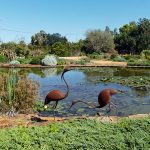We are clearly going through extremely challenging times as far as COVID-19 is concerned, with the highest number of daily deaths and new cases being recorded in November, with forecasts of higher to come.
When the news first emerged from China and the World Health Organisation, in January, of the outbreak of the new coronavirus, it rang alarm bells and took me back to Hong Kong in 2002 and the outbreak of SARS. As a senior police officer, I was inevitably involved in dealing with this outbreak, which went on to kill around 300 people in such a condensed place – I learned a great deal from that experience!
As such, in January, Safe Communities Portugal (SCP) decided to monitor developments closely in our official capacity as a voluntary civil protection organisation; in fact, I believe we were the first organisation in Portugal to do this for the foreign community. One concern from the outset was false news and misleading information. We forewarned the community about this at the time before the first new coronavirus case was confirmed here. This was an emerging problem then, but is a larger problem now; not just here, but globally.
How we prepared
Although, of course, we never know when the next crisis may occur, Safe Communities Portugal had been preparing extremely diligently for such an event. We were ready to provide a supporting role, following on from the major catastrophic fires and ensuing emergency, just three years ago.
We have, therefore, increased the size and breadth of our capability considerably: decision-making, technology and the agility of the Association. We have also built a team of loyal volunteers which is capable of responding to any large-scale crisis. We trained to become a statutory civil protection volunteer organisation, the only non-Portuguese association to achieve this status, and undertook many crisis management and emergency exercises with the Portuguese government authorities.
Our work
Our aim during this pandemic is to help the government in its efforts to provide informed official information and advice to the population, in order to help the community stay safe.
Specifically, we provide such information in English and other languages for non-Portuguese speakers and visitors. We try, where possible, to clarify to the population government information and advice, help with public enquiries (and there are many), liaise with Government and embassies; counter misinformation and make proposals to the government, where we consider a need to do so.


From the beginning of March to November, according to Facebook Insight, SCP’s total reach was over 6 million (an average of 23,529 per day, the highest being 103,000 for a single post in November). Enquiries totalled around 60,000, i.e. 235 per day of which we estimate 70% were answered, whilst receiving over 2000 messages and 1300 emails. We have made some 30 broadcasts through Kiss FM radio and issued c. 50 newsletters.
Thousands of enquiries have been received from people worldwide, who follow our Facebook page and website, asking many questions concerning visits to Portugal, including travel advice, cross border issues, laws and rules in place and tourism-related matters.
During COVID-19, Safe Communities has certainly become a household name, in Portugal and overseas.
We pride ourselves in being a trusted source of facts, especially in emergencies, only dealing in facts and reporting official information.
Our services were best summed up by Vicky from Monmouthshire on the Safe Communities FB page, “This page is fabulous. One of the reasons I am moving to Portugal is because of the information here…… Truly, it has made such a difference, sitting in the UK, unable to get to Portugal, and now, we head off to start our new lives in mid-August”.
Our volunteers
Our work is only possible because we have a loyal team of volunteers who work without pay 24/7 when required. These include Elise Slotte (website) Jenny Byers, Clare Keats and Eliana Taveras (translations), Lilia Martins (legal), Jennie Kelly (newsletter/website), Louise Birch (overseas reports) Daniel Fernandes and our colleague in the Azores, and others. I thank you all.













